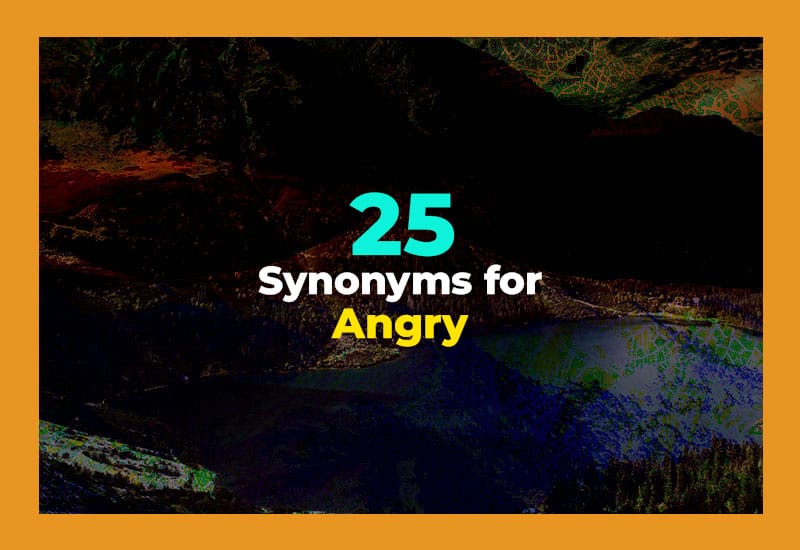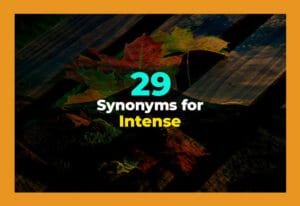You know how sometimes you feel really mad or just a little annoyed? Well, there are tons of fun and useful words to describe different kinds of anger! Whether you're just a bit irritated or full-on furious, these words will help you explain exactly how you feel. Using the right word can make your stories or conversations way more interesting.
1. Mad
Mad is a simple and common word for being angry. It means you feel upset or annoyed about something. "She got mad when her brother broke her favorite toy." Mad can be mild or strong, depending on how you say it. You can also say "mad at someone" to show you're angry with them. It's easy to use in casual talk, like when something small bothers you or when you are seriously upset. Mad is a perfect go-to word when you want to say you're feeling angry without sounding too serious.
2. Furious
Furious means extremely angry. When you are furious, your anger is very strong and hard to control. "He was furious after finding out someone stole his bike." Furious shows a higher level of anger than mad or annoyed. It's like boiling with rage and feeling ready to explode. You can use furious when you want to show that someone is really upset about a serious problem. This word is great for stories, emotions, or moments when anger feels very powerful.
3. Annoyed
Annoyed means feeling a little angry or bothered by something small. It's less serious than furious or mad. "I was annoyed when the movie started late." Being annoyed is common when things don't go your way or when people do something that irritates you. It can be about noise, waiting, or repeated mistakes. Annoyed is a good word to explain small frustrations that don't make you super angry but still upset. It's perfect for everyday problems.
4. Irritated
Irritated is similar to annoyed but sounds a bit more serious. It means feeling bothered or angry because of something unpleasant or repeated. "She felt irritated by the loud noise outside." You can be irritated by things like traffic, people talking too much, or being interrupted. It's a word that shows you're not happy but not exploding with anger either. Irritated is useful when describing a slow build-up of anger or discomfort.
5. Upset
Upset means feeling unhappy or angry about something. It's a softer word that shows you're disturbed by a problem. "He was upset when he lost his phone." Being upset can mean feeling sad or mad, depending on the situation. It's a good word to use when your feelings are mixed or not very strong. People often say they are upset when something bad happens, but they're not extremely angry or hurt.
6. Agitated
Agitated means feeling nervous and angry at the same time. It's like being upset and restless. "She became agitated when the meeting was delayed." Agitated shows more energy and discomfort than just being annoyed. It's often used when someone is worried and angry together. You can use this word when describing someone who can't stay calm because of anger or stress. It's great for showing that anger is affecting how someone behaves.
7. Enraged
Enraged means being extremely angry, even more than furious. It shows powerful and uncontrollable anger. "The crowd was enraged after the unfair decision." When someone is enraged, they might yell, shout, or act out of control because of their feelings. This word is strong and dramatic, perfect for stories or situations where anger is very intense. Use enraged to describe moments when someone's anger reaches its peak.
8. Infuriated
Infuriated means very angry or annoyed. It is similar to furious but can sometimes mean being irritated to the extreme. "She was infuriated when the package didn't arrive on time." This word shows that anger is strong and hard to hide. It's a good word for situations where you feel deeply upset because something unfair or wrong happened. Infuriated works well for both small and big anger moments.
9. Fuming
Fuming means visibly showing anger, often quietly or by being very tense. "He was fuming after hearing the bad news." When someone is fuming, they might not yell but still look very angry, like steam is coming out of their ears. It's a great word to describe people who are boiling with anger inside but trying to stay calm. Fuming gives a clear image of anger without shouting.
10. Seething
Seething means holding a lot of anger inside without showing it openly. "She was seething after the unfair comment." It sounds like anger is bubbling inside like boiling water. Seething is perfect to describe someone who is very angry but keeping quiet. This word shows strong feelings that might explode any moment. Use seething when you want to describe hidden or silent anger.
11. Outraged
Outraged means feeling very angry about something unfair or shocking. "The people were outraged by the new law." This word is often used when a group of people feel upset because something is wrong or unfair. Outraged shows anger mixed with a strong sense of injustice. It's a powerful word for serious anger about important issues. When you hear about protests or complaints, outraged is a common word.
12. Vexed
Vexed means feeling annoyed or worried, often about something small but persistent. "He was vexed by the constant noise outside." It's a formal word, not very common in everyday talk but useful in writing. Vexed shows irritation that stays for a while and can make someone angry over time. It's a good word to describe minor but ongoing problems that bother you.
13. Cross
Cross means being a little angry or upset, often in a mild way. "She got cross when her plans were canceled." It's a friendly word, mostly used in British English, to describe small moments of anger or frustration. Cross isn't very strong, so it's great for kids or polite conversations. If someone is cross, they might be grumpy but not furious.
14. Wrathful
Wrathful means full of extreme anger or rage. It's a strong and old-fashioned word often used in stories or poems. "The wrathful king punished those who betrayed him." Wrathful sounds powerful and serious. It's perfect when you want to show a deep, strong kind of anger, especially in dramatic or serious contexts. This word is great for describing someone who is very upset and ready to take action.
15. Indignant
Indignant means angry because something is unfair or wrong. "She was indignant about being blamed for something she didn't do." This word shows that anger comes from a sense of justice and feeling hurt by unfair treatment. Indignant is polite and formal but very clear about being upset. Use it when someone is angry but also feels they are right or treated badly.
16. Heated
Heated means showing strong emotions, including anger, often during an argument or debate. "They had a heated discussion about politics." Heated doesn't only mean angry but also excited or intense. It's a good word for moments when feelings run high and people get upset quickly. Heated works well to describe fights or debates where anger plays a big role.
17. Incensed
Incensed means very angry or outraged. It's a formal and strong word for extreme anger. "The community was incensed by the unfair treatment." When someone is incensed, their anger is deep and hard to control. It's a great word for serious situations where people feel deeply hurt or upset. Incensed is often used in news or formal writing to describe strong anger over injustice.
18. Livid
Livid means extremely angry, often so much that someone looks pale or red with rage. "He was livid when he saw the damage to his car." This word shows strong, fiery anger that can be hard to hide. Livid is often used to describe people who are shocked and furious at the same time. It's a colorful word that gives a clear image of strong anger.
19. Pissed
Pissed is an informal and slang word meaning angry or annoyed, mostly used in casual talk. "I'm really pissed that they canceled the concert." It's common in American and British English but is not polite for formal use. Pissed shows clear frustration and strong feelings but is often used among friends or informal conversations. Use it when you want to sound natural and casual.
20. Irate
Irate means very angry, more serious than annoyed or mad. "The customer was irate about the poor service." It's a formal word often used in business or news reports. Irate shows strong anger but is polite and professional. It's good for describing someone who is angry and upset in a serious way. Use irate for situations where anger is important but you want to stay respectful.
21. Frustrated
Frustrated means feeling upset because you can't do something or solve a problem. "She was frustrated after trying to fix the computer for hours." This word mixes anger with sadness or disappointment. Frustrated is very common in everyday talk and helps explain feelings when things don't work out. It's a good word to show you're angry but also stuck or upset.
22. Riled
Riled means made angry or annoyed, usually by someone else. "He was riled up by the rude comment." It's a casual word mostly used in American English. Riled shows that someone's anger is caused by a specific action or person. It's perfect for informal conversations or stories where someone is upset because of what others did. Riled is a fun and easy word to use.
23. Boiling
Boiling means extremely angry, like your feelings are heating up like boiling water. "She was boiling mad when she found out about the mistake." This word shows a strong, hot anger that can explode anytime. Boiling is very visual and easy to imagine, which makes it great for describing strong emotions. It works well in stories, jokes, or everyday talk.
24. Fed up
Fed up means tired of dealing with something that makes you angry or annoyed. "I'm fed up with all the noise next door." This phrase shows frustration and anger because of a long problem or situation. Fed up is very common in spoken English and is good for expressing when you've had enough. Use fed up when you want to explain that your anger is coming from patience running out.
25. Explosive
Explosive means ready to get angry quickly and intensely. It shows that someone's anger can "explode" suddenly. "He has an explosive temper and yells at small problems." This word is perfect for describing people who get angry fast and loud. Explosive can be about emotions or situations that get out of control. Use it when you want to warn others about someone's strong, sudden anger.

Final Thoughts
Choosing the right synonym for angry can help you express your feelings better and make your language more colorful. Whether you're just a bit annoyed or ready to explode with rage, there's a word that fits your exact mood. Try using these words in your everyday talks or writing to describe anger clearly and with style. It's all about making your emotions easy to understand and your stories more exciting. Remember, anger is natural, but how you say it can make all the difference!









